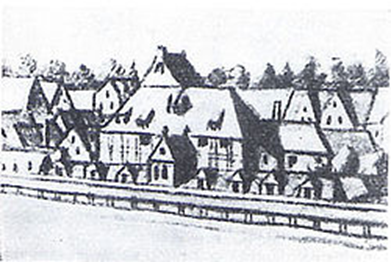
| Home | FAQs | Book Contents | Updates & News | Downloads |

In 2010 some staff at Munich University published♦ a rather interesting paper. It examined the current economic success of various German cities, looking at which ones had built opera houses before the year 1800. The conclusion that they reached was that the positive impact of this cultural amenity could still be detected regardless of the other factors such as original city size, proximity to industry or subsequent political history. At first glance this does not seem like startling news, I'm sure we all would have guessed that having such a major feature would attract certain residents, and that the ripples from that would impinge on the present. I found two things interesting: firstly similar cities that selected to spend that money in other ways typically failed to get as much benefit; and secondly the metrics they used to assess current success (such as the educational levels of the population).
Untangling what you consider to be a reasonable guess from your own biases is often quite a challenge. We all know the way to start is by gathering objective measurements and taking a sceptical approach to analysing the results. With the big questions though, identifying and collecting good metrics is usually the difficulty. To take an example my own personal belief is that a concern with technical data, that is worrying about how it is generated, stored and used, is crucial to the effective running of any modern organisation. In the long term, I am sure, the way a company looks after its data will be the biggest factor in determining its continued success.
Now of course everyone knows I think that, otherwise I would not have spent so much of my life worrying about exactly that topic and building the skills and concepts to address it. It has to be said though, I suspect within the oil industry this is a minority view. Naturally, most E&P staff are aware that having trusted technical data is a "good thing", but they see other activities, such as retaining good geoscientists, tight fiscal control and engineering knowledge as more significant contributors to long term success. I suspect the majority of oil company staff would say that they would prefer "someone else" to sort out the data issue while they get on with the "real work".
The "value creation" theory of business suggests that anyone's primary role should be to focus on activities that maximises their contribution to increasing the corporate value. The executives might best focus on contributing to corporate strategy; drillers might concentrate on safely reducing the cost per foot; and the receptionist should be obsessed with improving the impression visitors leave the building with. But in reality how can we disentangle the effect of, say, good data handling from, that of, say, good university recruitment? In 200 years I'm sure there will be obvious indicators that demonstrate if data handling is as important as I think it is. The eventual winners and losers will be easy to identify and correlating those with, for example, data management spend will give you the answer. The thing that is much harder to see is how we can devise the metrics to get that answer sooner.
♦ Munich University: Ifo Working Paper No. 88 "The Phantom of the Opera: Cultural Amenities, Human Capital, and Regional Economic Growth" by Oliver Falck, Michael Fritsch and Stephan Heblich (June 2010)
Article 55 |
Articles |
RSS Feed |
Updates |
Intro |
Book Contents |
All Figures |
Refs |
Downloads |
Links |
Purchase |
Contact Us |
Article 57 |